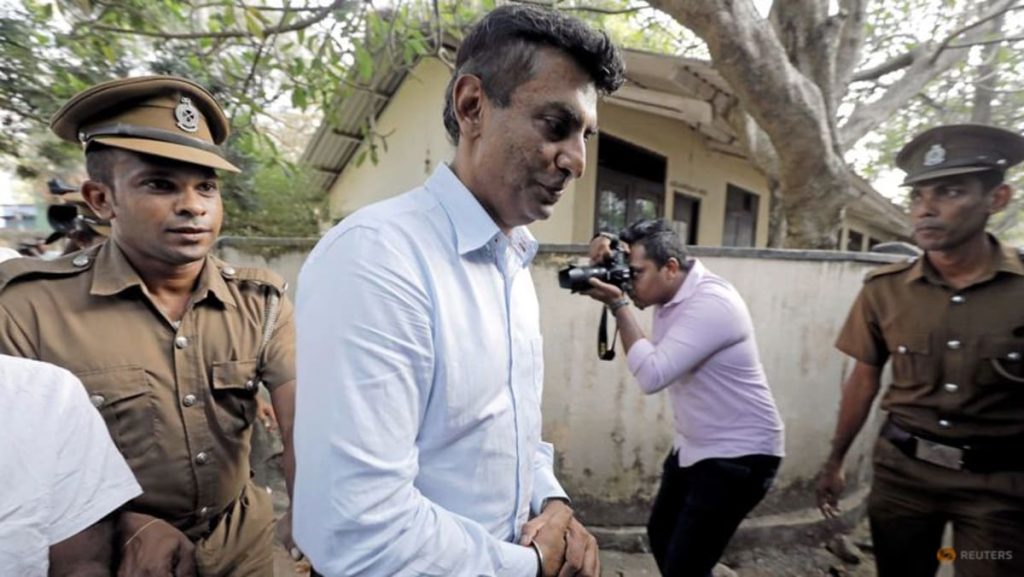The United States State Department marked International Anti-Corruption Day and the eve of Human Rights Day with a decisive action against corruption and human rights abuses worldwide, announcing a series of sanctions targeting individuals and entities from multiple countries. This coordinated effort underscores the U.S. commitment to combating corruption and upholding human rights on a global scale, leveraging its influence to hold perpetrators accountable and deter future transgressions.
Central to the sanctions were individuals implicated in bribery and corruption schemes involving significant financial transactions. Kapila Chandrasena, the former CEO of SriLankan Airlines, and his immediate family members were sanctioned for allegedly accepting a bribe to ensure Sri Lanka purchased Airbus aircraft at inflated prices. This action follows a 2020 probe by Sri Lanka into bribery allegations concerning Airbus aircraft sales, highlighting the international ramifications of corruption and the collaborative efforts to address it. Similarly, Udayanga Weeratunga, Sri Lanka’s former ambassador to Russia, and his family were targeted for their alleged involvement in a corrupt scheme related to the procurement of MiG aircraft for the Sri Lankan Air Force. These cases exemplify the potential for corruption to undermine national security and fiscal stability, underscoring the importance of international cooperation in combating such illicit activities.
Beyond Sri Lanka, the sanctions extended to other nations, targeting individuals accused of exploiting their positions for personal gain. Artan Grubi, the former deputy prime minister of North Macedonia, and Enver Bexheti, a judge from North Macedonia’s appeals court, were sanctioned for allegedly accepting bribes, demonstrating the U.S. commitment to combating corruption across various levels of government. Kevin Kedi, a councilman from the Marshall Islands, also faced sanctions for alleged bribery, further illustrating the global reach of these anti-corruption efforts. These actions signal the U.S. resolve to address corruption irrespective of geographical boundaries, reinforcing the message that corrupt practices will not be tolerated.
The sanctions also addressed individuals involved in undermining peace and security in various regions. Fawaz Akhras, a United Kingdom resident and father of Syrian President Bashar al-Assad’s wife, was redesignated for providing material support to the Syrian regime. This action reiterates the U.S. stance against the Assad regime and its human rights abuses. Furthermore, Abdul Qader al-Murtadha, head of the Houthi National Committee for Prisoners’ Affairs, and the organization itself were designated for involvement in torture, highlighting the U.S. focus on accountability for human rights violations in conflict zones. Visa restrictions were imposed on seven individuals accused of undermining peace and security in the West Bank, further demonstrating the U.S. commitment to promoting stability and human rights in the region.
In a significant move against organized crime, the U.S., in close coordination with the UK, sanctioned nine individuals and 19 entities linked to a global gold and diamond corruption network based in Zimbabwe. This collaborative effort underlines the importance of international partnerships in combating transnational criminal organizations that exploit resources and fuel corruption. The targeting of this network demonstrates the U.S. commitment to disrupting illicit financial flows and holding accountable those who facilitate and benefit from such schemes. This action also signifies a broader strategy of addressing corruption not just as isolated incidents but as interconnected networks that require coordinated international responses.
The sanctions imposed by the U.S. State Department encompass a range of measures, including asset freezes within U.S. jurisdiction and visa bans, effectively limiting the ability of targeted individuals to access the U.S. financial system and travel to the country. While none of the individuals named could be immediately reached for comment, these sanctions send a powerful message about the U.S. government’s commitment to holding accountable those engaged in corruption and human rights abuses. The coordinated nature of these actions, occurring in conjunction with International Anti-Corruption Day and the eve of Human Rights Day, further underscores the significance of these issues and the ongoing global efforts to combat them.

